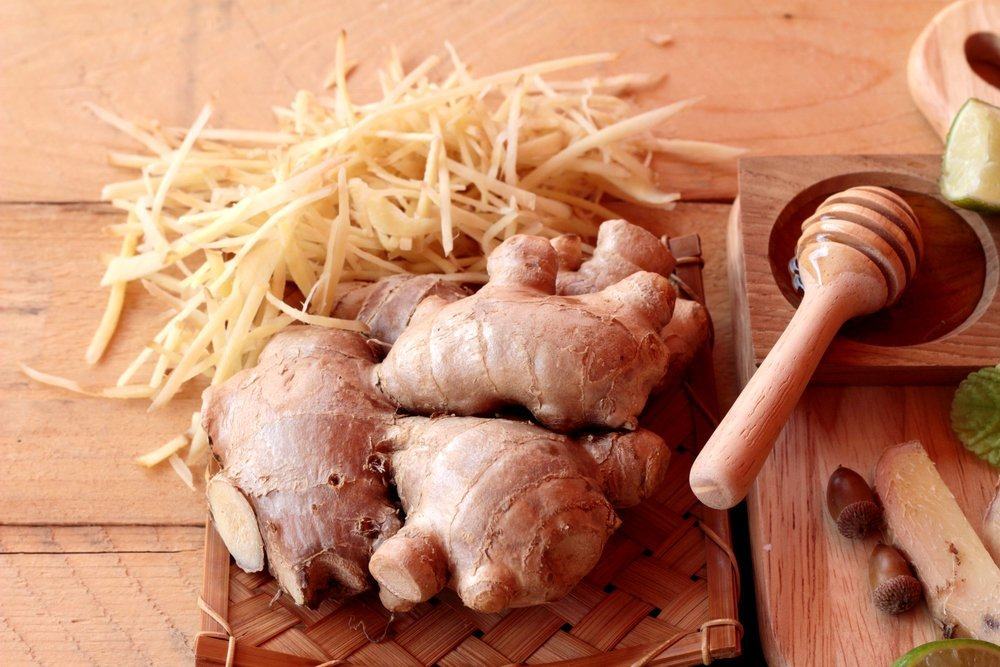Contents:
- Medical Video: Natural Cold Treatments
- The content in cold medicines
- Ginger
- Ginseng
- Honey
- Royal jelly
- Mint
- Fennel
- Nutmeg
- Turmeric
- Cinnamon
- Clove
Medical Video: Natural Cold Treatments
Many of you may take cold medicines when you feel cold symptoms, such as nausea, flatulence, dizziness, and fever. Yes, anti-wind products are herbal medicines that can warm the body, making you feel more comfortable. You can easily find these anti-wind products. However, what are the ingredients in anti-wind products?
The content in cold medicines
Cold medicine can be used directly or mixed with warm drinks. In general, this product contains natural ingredients which are blended into one. Some of the ingredients in anti-wind products are:
Ginger
Ginger is generally used to treat stomach problems, such as nausea, vomiting, stomach cramps or bloating, until loss of appetite. Ginger can also treat cough, migraine headaches, menstrual pain, respiratory problems, rheumatism, and osteoarthritis.
Ginger contains many anti-inflammatory compounds and antioxidants, such as gingerol, beta-carotene, capsaicin, caffeic acid, curcumin, and salicylate. The antioxidants in ginger can help fight free radicals in the body. In addition, ginger also has the effect of warming the body and can help stimulate blood flow throughout the body, so it can alleviate circulatory problems. The warmth given by ginger can reduce bloating or wind in the digestive tract.
Ginseng
Ginseng can be used to increase concentration, memory, physical stamina, prevent muscle damage due to exercise, overcome stress, anxiety, and fatigue. Fever, nausea, vomiting, loss of appetite, sleep problems, nerve and joint pain, dizziness, and runny nose can also be cured with ginseng. In addition, ginseng can also be used by people with diabetes because it can help lower blood sugar levels and cholesterol levels.
Ginseng contains active substances. One of the active substances contained in ginseng is ginsenosides or panaxosides. These Ginsenosides have anti-inflammatory effects, so they help increase the body's immune system to fight infection.
Honey
It has antiseptic and antibacterial properties, so it can help heal wounds quickly. In addition, honey also contains many antioxidants that can fight free radicals in the body. This contributes to improving one's immune system. For small children, honey can be used to cure a child's cough.
Royal jelly
Royal jelly is milk produced by worker honey bees and is a food for queen bees. You can use Royal jelly to treat asthma, fever, liver disease, pancreatitis, insomnia, premenstrual syndrome (PMS), kidney disease, menopausal symptoms, fractures, lowering cholesterol, reducing the effects of aging, and also can boost the immune system.
Mint
Can be used to treat colds, coughs, inflammation of the mouth and throat, sinus infections, and respiratory infections. The content of menthol (natural decongestant) in mint can break down phlegm and mucus so that it is easier to remove when you runny nose and cough. Mint can also be relied upon for digestive problems, concerning heartburn (burning sensation in the chest), nausea, vomiting, irritable bowel syndrome, diarrhea, bacterial overgrowth in the small intestine, and stomach gums.
You need to know that mint is one of the foods that contain the highest antioxidants than other foods. Apart from antioxidants, mint also contains anti-inflammatories (rosmarinic acid) which can reduce allergy symptoms. The use of mint as a flavor enhancer in cooking can also reduce your sodium intake.
Fennel
Fennel can be used to relieve digestive problems, such as chest pain, stomach bloating, intestinal bergas, and loss of appetite. In addition, fennel can also be used to treat coughs, upper respiratory infections, bronchitis, and back pain.
Fennel contains many antioxidant flavonoids, such as kaempferol and quercetin. In addition, fennel also contains fiber which can help lower cholesterol. Minerals and vitamins are also contained in fennel, such as copper, iron, calcium, potassium, manganese, selenium, zinc, magnesium, vitamin A, vitamin E, vitamin C, and vitamin B complex.
Nutmeg
Nutmeg contains compounds that can affect the central nervous system, also contain antioxidants, antifungals, and antidepressants. Nutmeg can be used to treat diarrhea, nausea, stomach cramps, and intestinal glands. This herb also contains vitamins and minerals, such as vitamin B complex, vitamin C, vitamin A, folic acid, copper, potassium, calcium, manganese, iron, zinc, and magnesium.
Turmeric
Turmeric has been believed to be hereditary as a natural remedy for various diseases. Turmeric can be used to treat diseases, such as dyspepsia, abdominal pain, bleeding, diarrhea, intestinal glands, flatulence, irritable bowel syndrome, loss of appetite, menstrual problems, arthritis, joint pain, liver problems, gallbladder disorders, high cholesterol, problems kidney, bronchitis, lung infections, runny nose, fever, and fatigue. The content of curcumin in turmeric can help reduce inflammation, so that turmeric can treat conditions that involve inflammation.
Cinnamon
Research shows that cinnamon can reduce inflammation, have antioxidant effects, and can fight bacteria. Some studies also prove that one type of cinnamon, cassia cinnamon, can reduce blood sugar levels in people with diabetes. In addition, cinnamon can also be used to help treat muscle spasms, vomiting, diarrhea, infections, colds, loss of appetite, and erectile dysfunction.
Clove
Aside from being a cold medicine, you can also use cloves to treat abdominal pain and as an expectorant to help treat cough with phlegm. Cloves that are applied directly to the gums can help to reduce toothache or to control pain during dental treatment. In addition, cloves in the form of oil can be used to treat diarrhea and bad breath. Antioxidant, antiseptic, and anti-inflammatory properties contained in cloves.
READ ALSO
- List of Foods that Stimulate Wind Disposal
- 8 Benefits of Activated Charcoal for Health
- 5 Foods Causes Bloating Stomach












